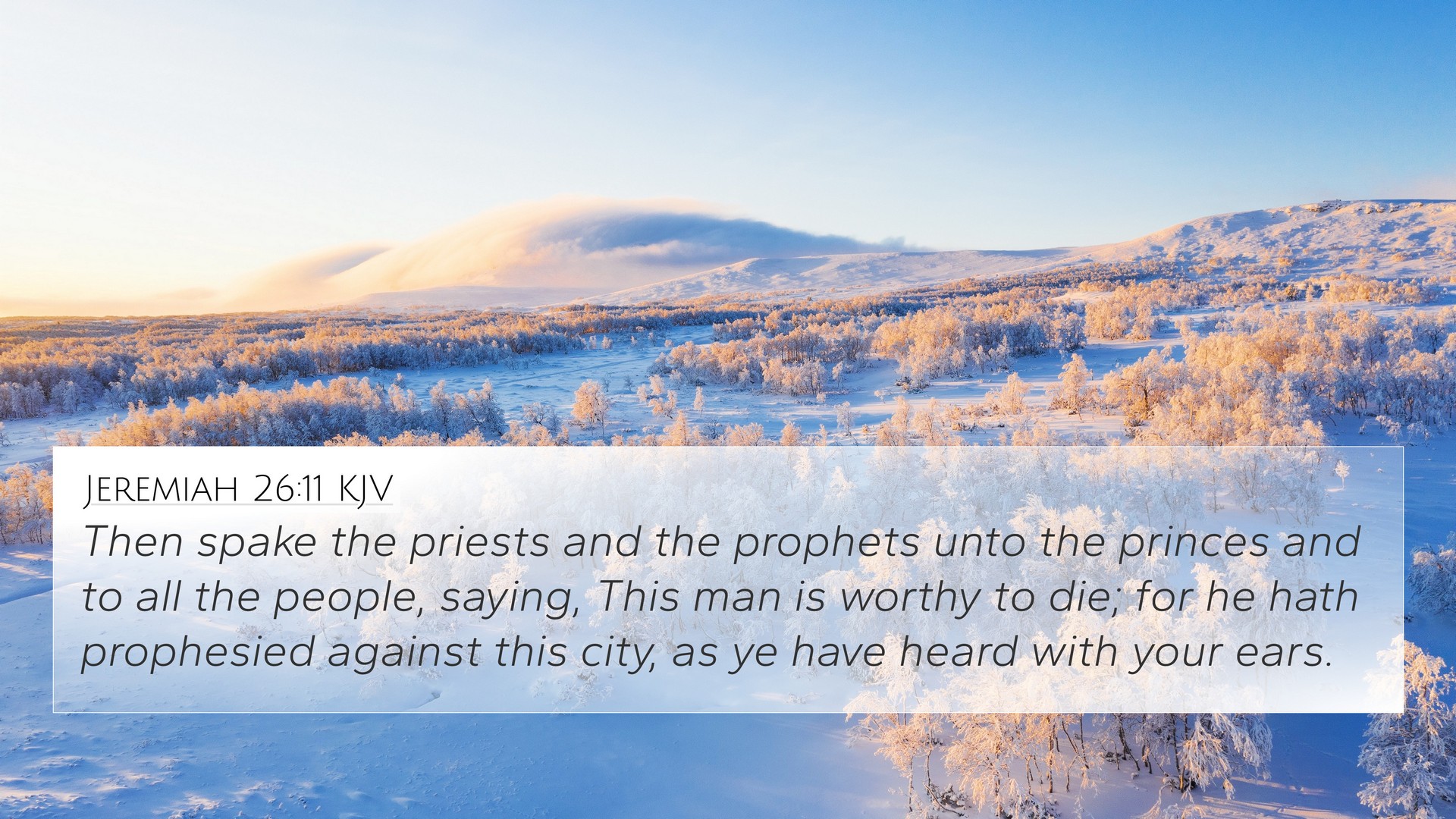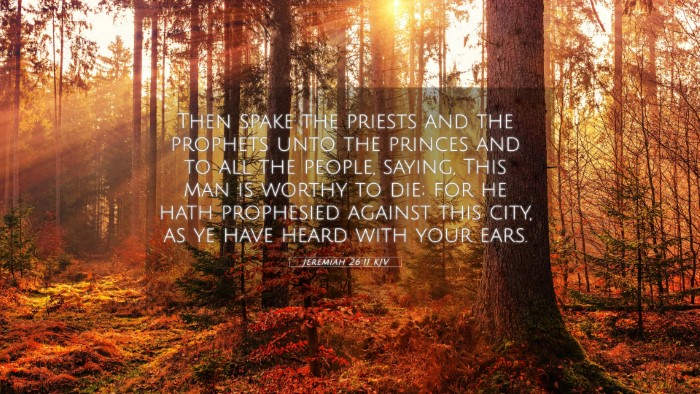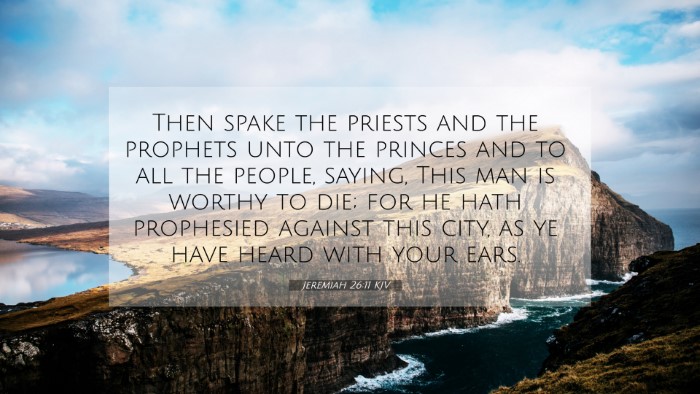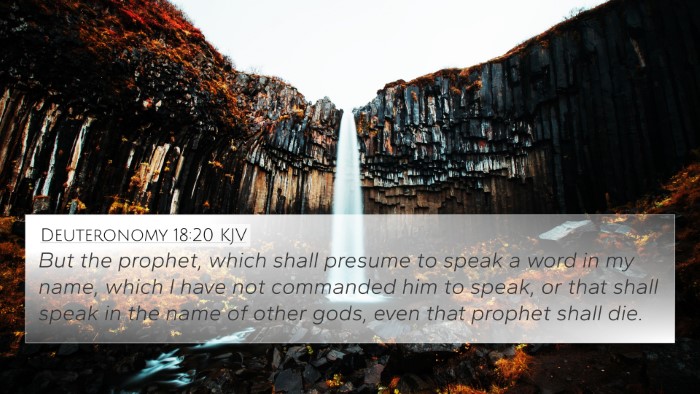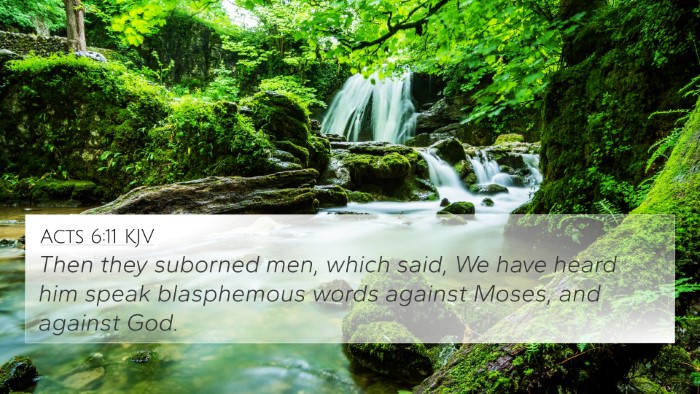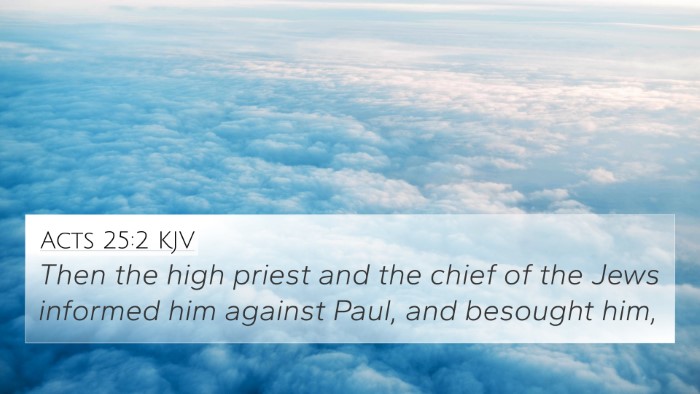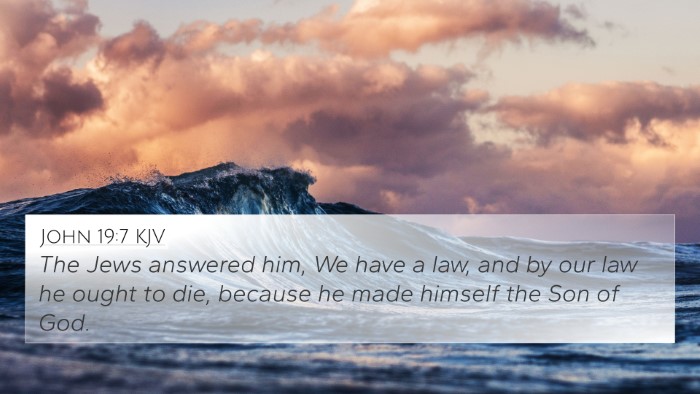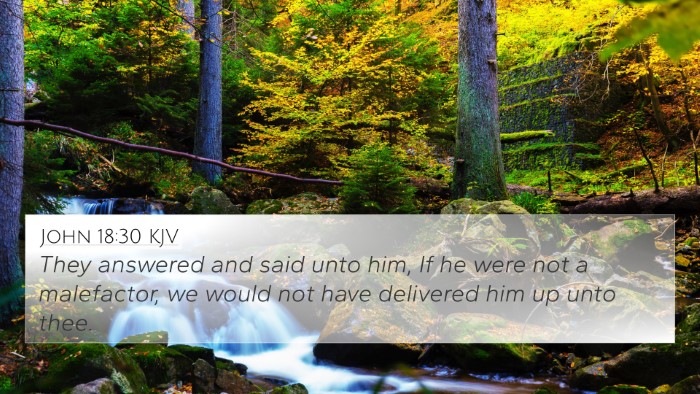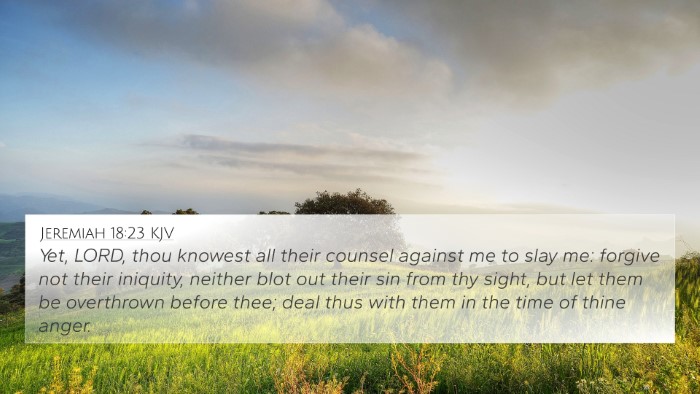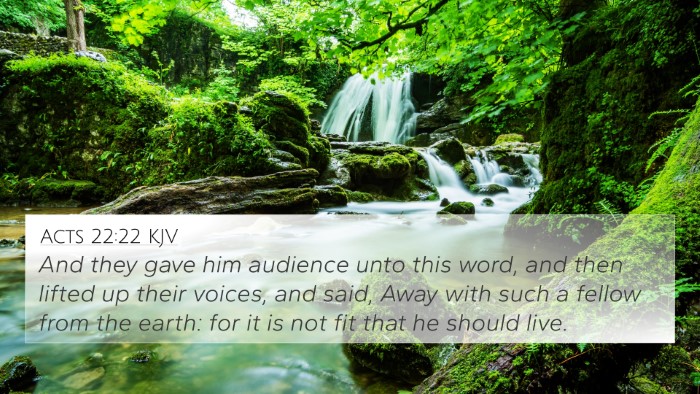Understanding Jeremiah 26:11
Jeremiah 26:11 reads: "Then the priests and the prophets spoke to the princes and to all the people, saying, This man deserves to die; for he has prophesied against this city, as you have heard with your ears."
This verse narrates the intense conflict surrounding the prophet Jeremiah and his prophetic ministry. Below, we will explore its meaning and implications by compiling insights from renowned public domain commentaries, while drawing connections with other scriptural references.
Context and Background
The context of Jeremiah 26 exposes a warning from God through His prophet Jeremiah against Jerusalem during a time of impending judgment. Jeremiah’s message was not well received, leading to severe opposition from the religious leaders.
The Message of Jeremiah
Jeremiah's proclamation of God’s impending judgment was seen as a direct threat to the temple and the people’s faith. The mention of 'priests and prophets' indicates a coalition of religious authorities uncomfortable with Jeremiah's prophetic message. According to Matthew Henry, the religious leaders sought to maintain their influence by vilifying Jeremiah, asserting their authority over divine revelation.
Interpretation of the Accusation
In this verse, the priests and prophets accuse Jeremiah of deserving death. Albert Barnes notes that this reflects the broader rejection of prophetic voices that challenge the established order. It highlights the tension between divine truth and societal norms.
Emotional Climate of the Moment
As recorded in this passage, the emotional intensity reveals the stakes involved for Jeremiah—his life and his message. Adam Clarke comments on the fervor of these accusations, emphasizing the dangers faced by genuine prophets in a hypocritical religious climate.
Cross References
To facilitate a deeper understanding of Jeremiah 26:11, here are some relevant Bible cross-references:
- Matthew 23:37 - Reflects the same rejection of God's messengers.
- Micah 2:6 - Contains a similar theme of rejection of prophetic warnings.
- Acts 7:52 - Stephen's address highlights the historical pattern of rejecting prophets.
- Jeremiah 20:1-2 - Prior accounts of Jeremiah’s persecution for his messages.
- Isaiah 30:10 - The people’s desire for false prophets, ignoring true warnings.
- Luke 13:34 - Jesus lamenting over Jerusalem, similarly persecuting prophets.
- Romans 11:3 - Paul references the historical rejection of God’s prophets.
- 1 Kings 18:4 - The persecution of prophets of the Lord during Ahab's reign.
- Psalm 69:9 - A prophetic lament that connects to the suffering experienced by God’s messengers.
- John 15:20 - Jesus speaks of the world's hatred towards His followers, aligning with Jeremiah's plight.
Connecting Themes Across Scriptures
The connections between Bible verses unveil a remarkable inter-Biblical dialogue and thematic parallels that enhance our comprehension of prophetic ministry. The thematic Bible verse connections from Jeremiah 26:11 expose the consistent struggle faced by prophets throughout Biblical history.
1. Prophetic Rejection
The rejection faced by Jeremiah resonates throughout the scriptures; instances like Micah's experience and the trials of the early apostles reflect a recurring motif depicting how truth often invites hostility.
2. Divine Judgment
Many verses convey God’s displeasure with unfaithfulness and the inevitable consequences that follow. For instance, the prophecies of doom found in Isaiah parallel Jeremiah’s warnings, providing a comprehensive picture of God’s consistent message to humankind.
3. Martyrdom of Prophets
The history of prophets often culminates in persecution, corroborated by references in the New Testament that explain this phenomenon as part of God's redemptive plan. Thus, understanding Jeremiah's experience sheds light on the experiences of later figures such as Jesus and the Apostles.
Conclusion
Jeremiah 26:11 serves not only as a historical account but also as a divine illustration of the struggle between truth and the status quo. The deeper understanding of this verse is enriched through cross-referencing with other scripture, revealing a tapestry of divine revelation that speaks to the nature of God’s messengers and the societal inertia against divine authenticity.
Further Study
For those interested in further exploring these themes, utilizing a bible concordance or a bible cross-reference guide can be advantageous. By engaging in cross-reference Bible study methods, one can deeply analyze the connections and thematic continuities present in the scriptural texts.
Through the use of comprehensive Bible cross-reference materials, one can identify not only the connections between Old and New Testaments but also the narrative threads that run throughout both the Prophets and Apostolic teachings.
